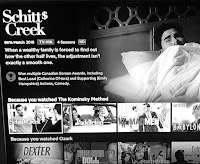by Brian T. Lynch, MSW
A young mixed-race couple from New Jersey has had a Netflix account for some years. When they sign-on to their account they see scores of movies and TV shows from which to choose, selections recommended to them based on their past viewing habits. The movie ratings on Netflix are either in the form of a five-star graphic or a percentage of a match to their viewing profile.
This pre-selected movie process, as is true for other social media platforms, is based on computer algorithms with some artificial intelligence (AI) enhancements to help the couple find movies similar to those they have enjoyed before. This AI self-learning routine continuously refines the algorithms to improve the match based on their viewing patterns. Exactly how the process works is a trade secret at Netflix, as it is with Facebook, Twitter, and other social media platforms. The effect, however, is an ever more carefully curated selection of movies sure to be to their liking.
When this couple took a short trip to Pennsylvania, they stayed at a hotel where the guy who had the room before them hadn't signed-out of his Netflix account. The Netflix movie choices that came up on the screen were from his account and were not the same offerings. In fact, the couple was shocked to discover they didn't recognize any of the movie titles at all. For one thing, nearly every movie had an entirely African-American cast. Most of these titles were rated four or five stars. While the couple sometimes watched movies with an African-American cast at home, they couldn't understand why they had never seen any of these titles before?
Out of curiosity, they started searching this man's account for the movies they normally see on their account. They did find them but discovered that the same highly rated movies they were watching at home had a low viewer rating on this strangers account.
Think about the implications here. Hollywood movies have an enormous impact on our culture. This couple believed that all the movies they were watching, with all the themes and storylines they contain, was the norm for Netflix views around the country. At the same time, the person who hadn't logged out of his account probably believes the movies he is watching are what everyone else is watching as well.
Given how influential movies are in altering human culture, we have an example here of two families whose concept of America's cultural norms are actually diverging over time. We can see that even the ratings assigned to movies on Netflix are not based on overall Netflix views, but rather on ratings within some AI computer-defined viewer segments.
This artificial segmentation of the population is happening everywhere, across all social media platforms. Into how many different AI generated segments are we being corralled? To what extent is our narrowing worldview being remolded and reinforced by computer systems designed to maximize profits at the expense of our shared humanity. How long before we don't recognize a unifying American culture anymore?
It is the intent of those who design social media algorithms to continually increase the amount of time and attention we spend engaged within their media platforms. After all we, the participants, are the product they sell to the advertisers and businesses. Giving us even more of what we want or expect boosts our engagement time which improves their profits. But the AI computer-generated segmentation of society and the constantly narrowing framework of choices we are given are constructing electronic barriers between human communities just as effectively as geography, topography, and distances once separated societies in the past.
Those physical barriers in the past resulted in different races, languages, cultures, and ethnicities, but also generated all the suspicion, distrust, fear, and covetousness that plunges us into wars. In the modern era, we started breaking down not just the physical barriers, but we have been slowly transcending our differences as well. We have started to recognize our shared humanity, making us more tolerant of human differences, more understanding, and more pluralistic than ever before.
If this acceptance of our shared humanity is a good thing, if it is the direction towards which we all should aspire, then the profit imperative underlying social media algorithms is a direct threat to achieving that better world.
This year marks the 80th year since that last outbreak of global war. Terrorism, mass shootings, a rise in global nationalism and increased divisiveness within and among nations is an ominous sign that a shift has taken place. The role that social media is playing in this growing disunity is difficult to perceive, but it is nevertheless the means by which this shift is happening. We can no longer play a passive role in the design of social media platforms. We must take charge and redesign our social media ecosystems in order to preserve our shared humanity and break down the electronic barriers that are currently driving us apart.
_______________________________________________
For more on this topic see a prior post: http://aseyeseesit.blogspot.com/2019/02/has-being-human-become-problem.html






